Beginners Photography Courses | Get off Auto
How are the photography courses useful to beginners?
In major cities, there are plenty of places for photographers to unleash their potential and learn how to photograph from scratch. There are courses: for beginner photographers, to improve photography skills in a certain area, to improve their skills. Even if there are not many photography schools in your city, but you are ready to study online, your possibilities are almost unlimited.
If you are a beginner, then the courses will teach you: Basic camera settings. Working with light and creating a composition (how to focus on an object, how not to fill up the horizon line, how to make a photo bright). Competent photo processing. Filming on location and in the studio.
If you already have experience in professional photography and want to improve your skills, then the courses will be about these topics: How to work with all types of light. How to use various lighting equipment (softboxes, reflectors, photo umbrellas, sources of various light). Which lighting scheme and for which photography is better to choose. About the detailed use of programs for processing photos.
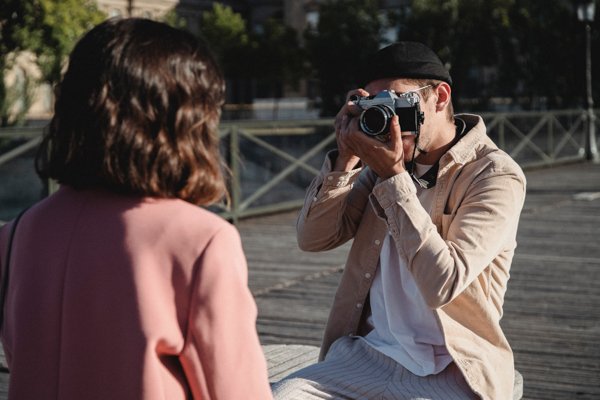
How are the photography courses useful to beginners?
Photography courses will help a beginner go through the necessary steps to succeed in their future practice of photography, let's look at these steps:
-
You need to learn how to use the capabilities of your camera to 100% by learning how to take pictures in the basic modes of creative photography, when you can influence the result of photography. A camera is a tool that can do a lot in the capable hands of a photographer, but you need to learn how to use it correctly.
-
At the same time, it is necessary to learn how to correctly apply lighting, natural and artificial, as well as mixed. After all, it is light, direct and reflected, that draws a picture for us, and the camera allows us to convey this picture.
-
Learn at least the basics of compositional frame construction, learn how to apply this knowledge in practice so that the photo can fully convey to the viewer the main idea of your picture.
-
Additionally, it is worth mastering photo processing in a photo editor, which will significantly expand your capabilities.
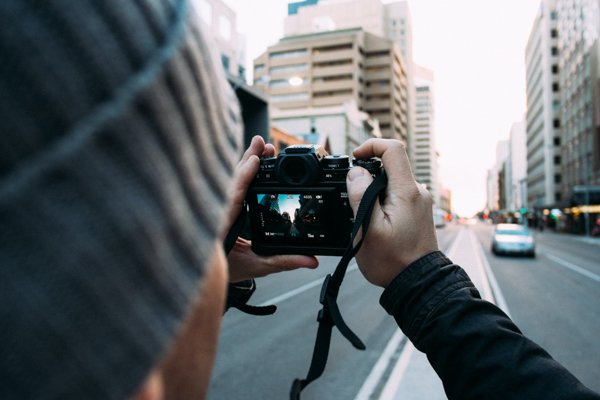
What is a good course to follow as a beginning photographer?
So, at some point in your life, you felt an unusual burst of energy - you took a photograph that you absolutely loved. Then you made a hundred more, and you liked one or two of them. Photography has already pushed you, hooked you, and you would like to learn how to take conscious photographs so that out of a hundred you like the majority. You know it's real and you want to choose photography courses. Here the fun begins - you have to choose courses in photography. If you are planning to take photography seriously and maybe even make money, then choose a photographer or a school with a good reputation and a large number of courses for further development. If you want to learn how to shoot for yourself, then a course on the basics of photography for beginners is suitable for you. And if you are used to getting information from the Internet, then perhaps YouTube videos will be enough for you.
If you just want to take good photos more consciously, for example with your phone, you don't have to dive deep into the history of photography and the manual settings that great photography courses often start with. In this case, choose photography courses on a smartphone.
In order to have more confidence when shooting with a camera, it is worth learning the basics of photography, basic things that apply to any technique - light, composition, angle, framing, details and manual camera settings. And it is very good to train these skills so that they do not remain theory, but become knowledge in practice. This can be done in our introductory courses for beginners (4 workshops).
If you make beautiful things with your own hands, handmade, cook delicious food or need to take good photos of items for sale and social networks, you probably don’t need to dive into the history of photography either.
You can take beautiful “magazine” photos with your smartphone at home. To do this, you need to again deal with light, composition, angles, details and fast processing, and at the same time understand how a selling photo should look like.
And it is very good to practice new knowledge in practice, directly with your products or objects. And the courses will help you bring your photos to the desired look.
If you want more control over your photos and the process of photographing, then you should definitely understand the manual settings of the camera well. If you already know a lot of theory, took photography courses, but do not feel very confident with the camera, or just want new challenges in photography, then you can choose purely practical private classes with less instructions and a detailed analysis of each photo. This makes it great to understand what you need to pull up exactly for you and where exactly you have gaps.
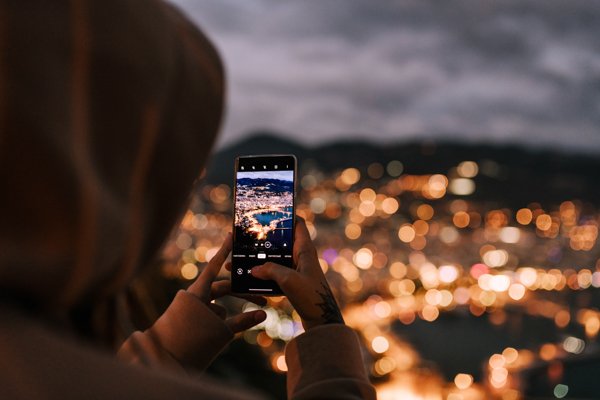
How can I learn photography on my own?
Free courses and workshops on photography and processing can always be found on the Internet. If you want to study photography on your own, look for information on such topics:
Camera technical settings This is what the photographer must know and be able to consistently get the expected result. We recommend taking the photo course on technical camera settings first. Even the most wonderful creative idea can stumble over the impossibility of implementing it technically. And it's a shame if you made an interesting shooting, and everything looked great on the camera screen, but at home on a large monitor it turned out that the shooting failed. In general, you should at least figure out what technical settings are needed to implement the intended pictures, and where these technical settings are specifically in your camera.
Working with lighting Light is the main tool of the photographer. It is as important to understand it as it is for an artist to be able to handle brushes and paints. By the way, the word “photography” is translated from Greek as “drawing with light”. Even if you do not plan to work in a studio, you need to understand how to create a black and white drawing on the street. Light can emphasize volume and shape, enhance a gloomy mood due to deep shadows, or vice versa - create a warmer feeling in the viewer by removing deep shadows. Learning to work with light is usually much easier and more fun than learning the “materiel” at the first stage. The main thing is that the teacher can systematically and consistently present the theory.
Composition. Expressive photography tools A separate item worth mentioning is such a tool as composition. Several people may perceive the same frame in different ways. What for one is a masterpiece, for another may be a completely uninteresting picture. Perception depends on life experience, upbringing, cultural level. This does not mean that some kind of perception is better or worse, it is simply different for different people. However, there are general rules that work for most viewers. The more precisely you understand who you are addressing the photo to, the easier it is to understand how it will be perceived and what tools you can use to enhance the mood in the frame. And so, in order to understand this, it just makes sense to study composition - the science of visual perception of pictures and the world around us as a whole. We described the composition with the last paragraph, but you can start studying it in parallel with mastering the technical base. The sooner you begin to understand the theory of visual perception of the world, the easier it will be for you to take shots that attract attention.
Photo processing, retouching After the photo is taken, the camera applies the default processing algorithms to it. The camera (or rather, the processing program built into it) sets the contrast, color saturation, etc. There are no photos absolutely without processing and never have been. When shooting on film, the photographer, focusing on what kind of picture he wants to see in the end, chose the film, paper for printing photographs, and the chemistry with which this process will take place. For example, there is a film that gives a more contrast image, there is one that adds warmer tones. In addition, there was a separate profession - a retoucher (a person who, in particular, could draw on film, achieving the result the photographer needed). You may well give the processing to the algorithms embedded in the camera and not work on the pictures after shooting. But, if you still want to influence the result, you either need to learn how to process photos yourself, or give them to a retoucher who will refine them in a graphics editor (for example, in Photoshop). If we are talking about professional photography, then a basic course in photo processing is needed. After it, you, firstly, will understand what opportunities you have, and secondly, you will be able to speak the same language with the retoucher.
You can also find many different videos on photography on YouTube:
- interviews with photographers;
- reviews of novelties of photographic equipment;
- life hacks for shooting in various genres;
- analysis of photographs and portfolios;
- backstage of the filming process;
- photo editing process.
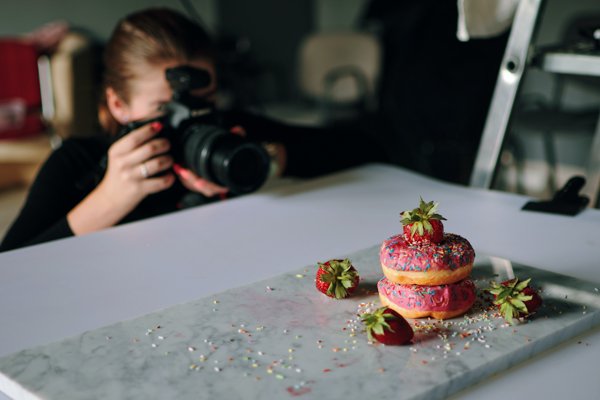
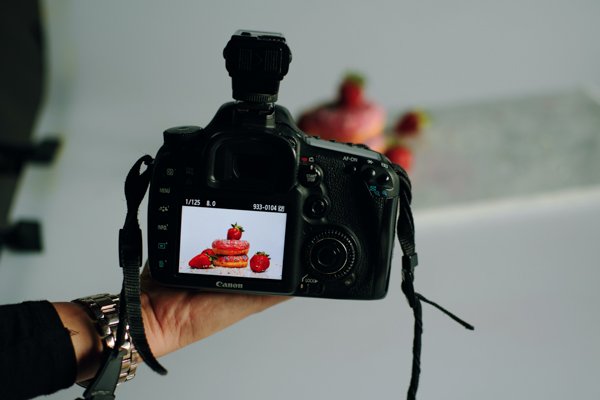
Is there any good free online photography course?
If you're not sure yet if you want to invest in photography education, you can try looking for free stuff online. We have prepared several options for you:
Lectures by Mark Levoy Mark Levoy is a former professor at Stanford University and a computational photography engineer at Google. His author's course consists of 18 lectures. Levoy's approach is quite fundamental, he gives historical references, turns to science and is not afraid of technical details.
Mobile photography An updated course from seasoned professional and author of several photography tutorials, Sean Duggan. The definition of "mobile photography" includes, surprisingly, a lot of things. For smartphones, there are a bunch of different nozzles, lenses and filters. Duggan tells how not to get lost in the world of "pocket" photography. On the Lynda platform - free access to all lectures for the first month.
Create at Home Video Series by B&H Photo Video The playlist called #StayHome and Create With Us (look it up on youtube) contains videos dedicated not only to photography, but also video and audio recordings in quarantine. The advantage is that the cycle is regularly updated, and the topics of the training videos are much more diverse than in courses for beginners. The last two lessons are just devoted to how to equip a mini-studio at home. Also, one of the recent videos contains tips on how to get rid of the mess in Lightroom (and it will definitely appear if you shoot a lot).
Courses on Tuts+ On the tutsplus platform, you can find a number of good free master classes on various topics. For example, how to mimic film if you're shooting with a digital camera, or how to learn to pose if you're not a model. Both individual lessons and entire courses are available. In particular, a lot of materials are devoted to techniques and tools for working in Adobe Photoshop and Lightroom.
Animal Photography Guide by Expert Photography You can find a selection of tips for those who want to devote the rest of the quarantine period to photographing their pets on their website. It explains which settings are best on the camera or how to shoot on the phone, as well as how to plan a photo shoot and prepare an animal for it. In addition, the authors of the article give several life hacks for working with cats and dogs. Those who are considering a career change will even find advice here on planning a shoot from a photography-as-a-business perspective.
You can also find many lectures freely available on Youtube like this one:
